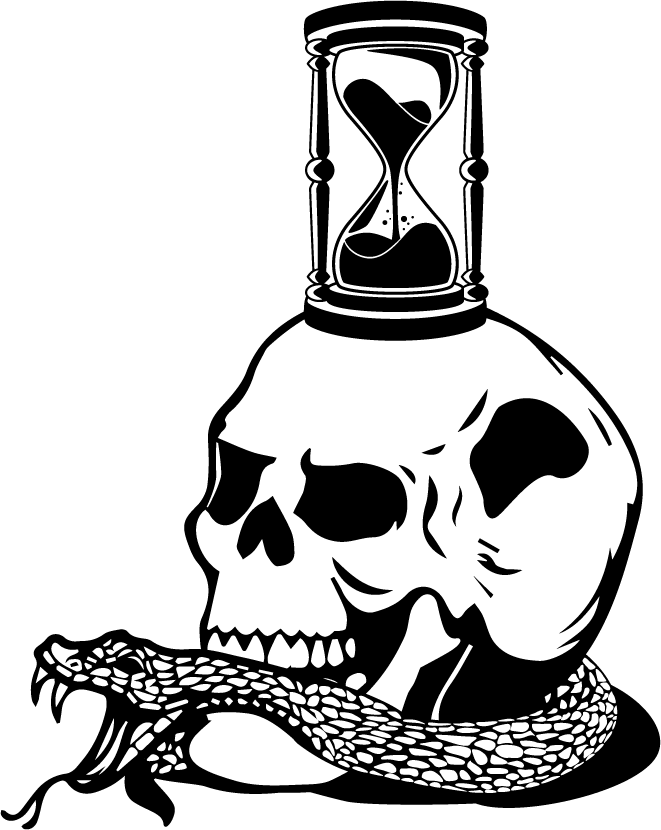ROAR is a music project created by Owen Evans, a musician from Arizona. The project began in 2010 and saw the release of the full EP titled “I Can’t Handle Change.” Analyzing the cover of this EP, we can first see two faces, one male and one female, representing Phil Spector and his wife Ronnie Spector.


Ronnie, born Veronica Yvette Bennett on August 10th 1943, in New York and raised in Washington Heights, a neighborhood in Manhattan, began singing with her sister and cousin during her adolescence, inspired by Frankie Lymon and The Teenagers. The cultural background of these three girls played a significant role in their rise in the music world during the racially charged 1960s.

The Bennett sisters were Black Americans of Irish descent, while Mrs. Talley was Black Indian and Puerto Rican heritage. “Be My Baby,” one of the Ronettes’ songs, became a classic of 1960s pop, which inspired Martin Scorsese in the creation of his 1987 television show “Moonlighting” and serving as the soundtrack for “Dirty Dancing”. This group of girls marked a significant milestone in female rock music.

However, in 1967, the Ronettes disbanded, and Veronica, also known as Ronnie, became the wife of Mr. Spector the following year. Phil Spector, composer, was also the record producer of the Ronettes. In 1980, legal disputes arose regarding the Ronettes and Phil Spector, as they accused him of issues related to royalties. They claimed to have received less than $15,000 after signing with Phil Spector’s Phillies Records label in 1963 and had not received any further payments.

This legal case lasted for about fifteen years, but I won’t dwell on it. In fact, some information about the toxic relationship between Ronnie and Phil came to light during the trial. In 1974, Ronnie stated that she had been forced and threatened to sign the divorce contract with Phil, giving him all the rights to their music. She testified in court that Phil had told her, “I will kill you” and “I will hire a hitman to kill you.” According to her testimony, he even installed barbed wire and guard dogs to keep her confined to the house.
Ronnie was not allowed to leave the house without her husband’s presence. Phil also showed Ronnie a golden casket with a glass surface, threatening to kill her and then place her body inside to display it if she ever left him. Finally, in 1972, Ronnie managed to escape barefoot and with nothing, finding a way to divorce her husband. From the following year until 1974, when the divorce was finalized, Ronnie tried to recover from the shock she had experienced. Despite everything, she did not give up on music and even decided to keep the surname Spector to stay in the music scene. As Ronnie put it, “I needed any way I could to get back in”.
Phil Spector, over the years, met his own destiny, ending up in prison for the murder of actress Lana Clarkson in 1990.

Ronnie eventually published her memoir titled “Be My Baby: How I Survived Mascara, Miniskirts, and Madness,” where she shared her story and explained how she escaped from this dangerous marriage.

Having delved into the historical background of the album cover, let’s now analyze the songs. I invite you to listen to the entire EP “I Can’t Handle Change,” which lasts about fifteen minutes, and to carefully read the lyrics. “I Can’t Handle Change,” “Duck or Ape,” “Heart for Brains,” “Baby Bride Rag,” “Christmas Kids,” and “Just A Fan” all deal with the same topic: the toxic relationship between Ronnie and Phil.
In particular, “Christmas Kids” was used on TikTok for a trend related to the trans community.
In this song, there is an exchange between Phil and Ronnie, with Phil saying:
“Ronnette, my dear, don’t ever disappear. Do what you want as long as you stay here. I need you now, I love you so much. More than you can know. The Christmas kids were nothing but a gift.”
This phrase, as well as the title of the song “Christmas Kids,” refers to the twins that Phil adopted and gifted to Ronnie one Christmas (and apparently, over the years, there were legal disputes regarding the twins and their father).
The chorus is Phil saying:
“You’ll can change your name, you’ll can change your mind and leave this fucked up place behind. But I’ll know, I’ll know.”
This refers to the obsessive control Phil had over his wife.
“If you ever try to leave me, I’ll find you, Ronnie.”
Ronnie responds to her husband, saying:
“I’m leaving, Phil, I’m leaving now. I’m going to escape, but you won’t know how or where to find me when I’m gone. I’ll drink myself to death inside this prison cell.”
Ronnie revealed in a 2000 interview with The New York Times:
“I got drunk so much that I could only go to rehab to get out of that house.”
Ronnie rightly interpreted her home as a prison cell. I also appreciate the linguistic association between “leaving home” and “coming out.” I can imagine Ronnie finally leaving her home, and people trying to follow in her footsteps, coming out, and liberating themselves from this social oppression. Of course, this song was not only used by trans individuals but also by anyone who wanted to share a difficult moment related to their mental health and describe the feeling of being “segregated” in some way, pushed aside, much like Ronnie was in her home.

In general, as I mentioned earlier, this EP “I Can’t Handle Change” entirely revolves around the toxic relationship between Phil and Ronnie Spector. Moreover, it juxtaposes dark themes with upbeat musicality. “Baby Bride Rag,” in particular, reminds me of 1950s Doo-Wop a cappella groups. Doo-Wop is a rock and roll subgenre characterized by a cappella singing, meaning no musical instruments are used, and the voices create both the rhythmic and melodic components. While this song lacks the typical Doo-Wop feature of voices creating rhythmic sounds, it still reminds me of this genre.
Owen Evans, studying Phil Spector’s figure, identified recurring themes in his songs. Phil Spector continued to produce music over the years. Owen was interested in the contrast of Phil Spector, a man capable of subjecting his wife to hellish conditions while producing pop songs for teenagers. Owen found recurring themes in Phil’s songs, such as wanting to make women dependent on men and making them feel less valuable and loved. Phil Spector is also said to have forced Ronnie to watch “Citizen Kane” in the hope that she would realize she was nothing without him, of course, during the period when she was still confined at home.

Lastly, let’s discuss the final track of the EP, “Just A Fan.” The meaning of this song is similar to Eminem’s “Stan”, in which a fan writes numerous letters hoping to meet and interact with their idol, only to realize that the person they had idealized was not who they believed them to be, but rather a terrible person who had committed atrocious acts (in the case of “Stan”, obviously Eminem cannot be compared to Phil Spector). In “Just A Fan”, a follower of Phil Spector writes to him as they come to realize that the artist they admired in the music world was not the kind person they thought he was but, instead, a terrible person who had committed terrible acts.
In conclusion, I’d like to quote a statement from Veronica Yvette Bennett, made in 2007:
“Every song was a little piece of my life. I’m just a girl from the ghetto who wanted to sing.”


Leave a Reply